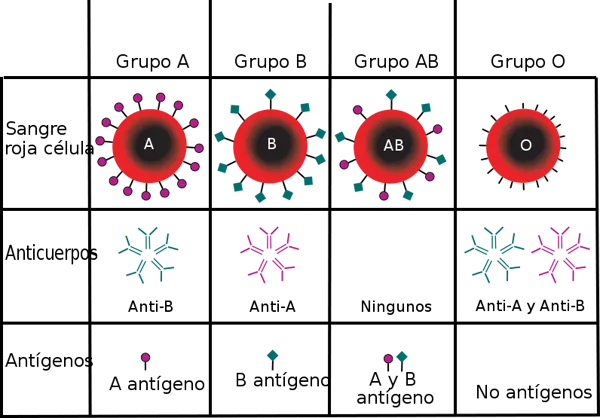A study of more than 80,000 women has discovered different risks of developing type 2 diabetes associated with the different blood groups, with the largest difference of 35 percent more risk of type 2 diabetes in people with group B and the RH factorPositive (R +) in the blood compared to the Universal Donor Group and negative RH Factor (R-).
The study, whose conclusions are published in «Diabetologia», the magazine of the European Association for the Study of Diabetes, was carried out by Dr. Guy Fagherazzi and Dr. Françoise Clavel-Chapelon, of the Research Center in Epidemiology and Health of thePopulation of the National Institute of Health and Medical Research (INSERM), in Villejuif, France, and its colleagues.
Although previous works have investigated the links between the blood group and the stroke, finding a higher risk to the AB group against the O, those of the blood groups and their relationship with diabetes have been small and unable to provide definitive results.
In this new investigation, Fagherazzi and his colleagues took the data of 82,104 women from the French study e3n of Prospective Cohort of 98,995 teachers who started in 1990 to study the risk factors of chronic diseases.The objective of the new work was to evaluate the relationship between the Blood type ABO (A, B, AB and O), the Rhesus factor (positive or negative) and a combination of the two (ABO * Rhesus) with type 2 diabetes (DM2).
The results showed that, compared to women with a blood group or, those of A were 10 percent more likely to develop type 2 diabetes, and those of group B had 21 percent more probabilities.The AB Group presented 17 percent more likely to develop type 2 diabetes, but this result was not statistically significant.
without differences in R+ and R-
When only R+ was observed compared to R-, none of the groups presented more risk of developing type 2 diabetes compared to the other.The authors then combine the ABO and Rhesus group and each possible combination with or negative (O-), which is known as the Universal Donor Group.
Compared to women O-, the greatest increase in developing type 2 diabetes in B + (35 per risk), followed by AB + (26 percent) and A- (22 percent), A +(17 percent).The results for O-, B-, and groups were not statistically significant.Fagherazzi points out: "This study shows for the first time in a great prospective cohort that ABO blood groups are associated with a higher risk of type 2 diabetes."
The authors say that the reasons behind the association are unknown, but that they could be related to a series of factors: it has been suggested that the human abo locus could influence endothelial markers or inflammation.The ABO group is also associated with various molecules known to be related to DT2 and a recent work concluded that the ABO group is a factor that determines the global composition of the intestinal microbiota, which in turn affects metabolism and, therefore,, it could be related to T2D.
Clavel-Chapelon points out that the study population included only women, but, as far as it is known, there are no biological mechanisms that explain a sex dependent association.According to Fagherazzi, based on these results, the effects of blood groups in clinical and epidemiological studies on diabetes should be investigated, in addition to more pathological research is needed to determine why people with blood of the type or have a minorRisk of type 2 diabetes.


